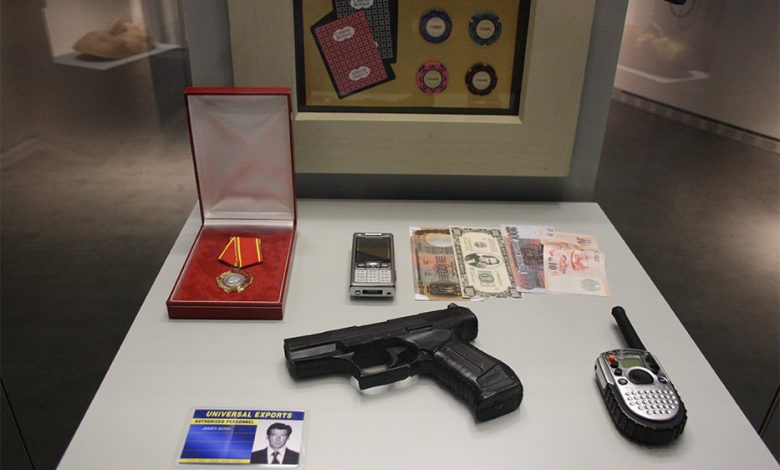
Secret agents and secret armies have long captivated our imaginations, and one name stands out as the epitome of the spy genre: James Bond. However, few may know that the creator of this iconic character, Ian Fleming, had a remarkable real-life background in intelligence and wartime operations. Before becoming a renowned author, Fleming served in Naval Intelligence during World War II and was involved in daring schemes and secret missions that rivaled the plots of his famous novels. This article delves into the intriguing story of Ian Fleming’s life, his role in Naval Intelligence, and how his experiences shaped the world of James Bond.
Key Takeaways
- Ian Fleming, the creator of James Bond, had a colorful background that ranged from being a journalist to serving in Naval Intelligence during World War II.
- Fleming’s experiences in intelligence operations and his connections with various intelligence agencies influenced the authenticity and realism of the James Bond novels.
- His wartime service inspired thrilling scenarios, realistic characters, and the exploration of espionage themes throughout the Bond series.
- Fleming’s travel experiences, passion for fast cars, and attention to detail added depth and excitement to the novels, immersing readers in Bond’s world.
- The enduring popularity of the James Bond novels can be attributed to Fleming’s unique writing style, blending realism with elements of the absurd and the outlandish.
Unveiling the Intriguing Origins of James Bond
Before Ian Fleming became renowned as the mastermind behind James Bond in the 1950s, he led a fascinating life that intertwined with secret agents and secret armies. This article delves into the real-life experiences and influences that shaped the creation of the iconic British spy.
Ian Fleming’s Early Life and Military Background
Ian Fleming, born on May 28, 1908, had a colorful upbringing. Despite his father’s successful career as a barrister and Member of Parliament, Fleming struggled to find his own path. He attended prestigious schools like Eton and Sandhurst, initially intending to join the British Army. However, his time at these institutions was less than promising. Fleming did possess a talent for languages, which he further honed during his studies in Switzerland, where he became fluent in French and German. Interestingly, Fleming’s love for Switzerland is reflected in several James Bond novels, featuring captivating scenes set in the country and a Swiss mother for Bond hailing from the Canton of Vaud.
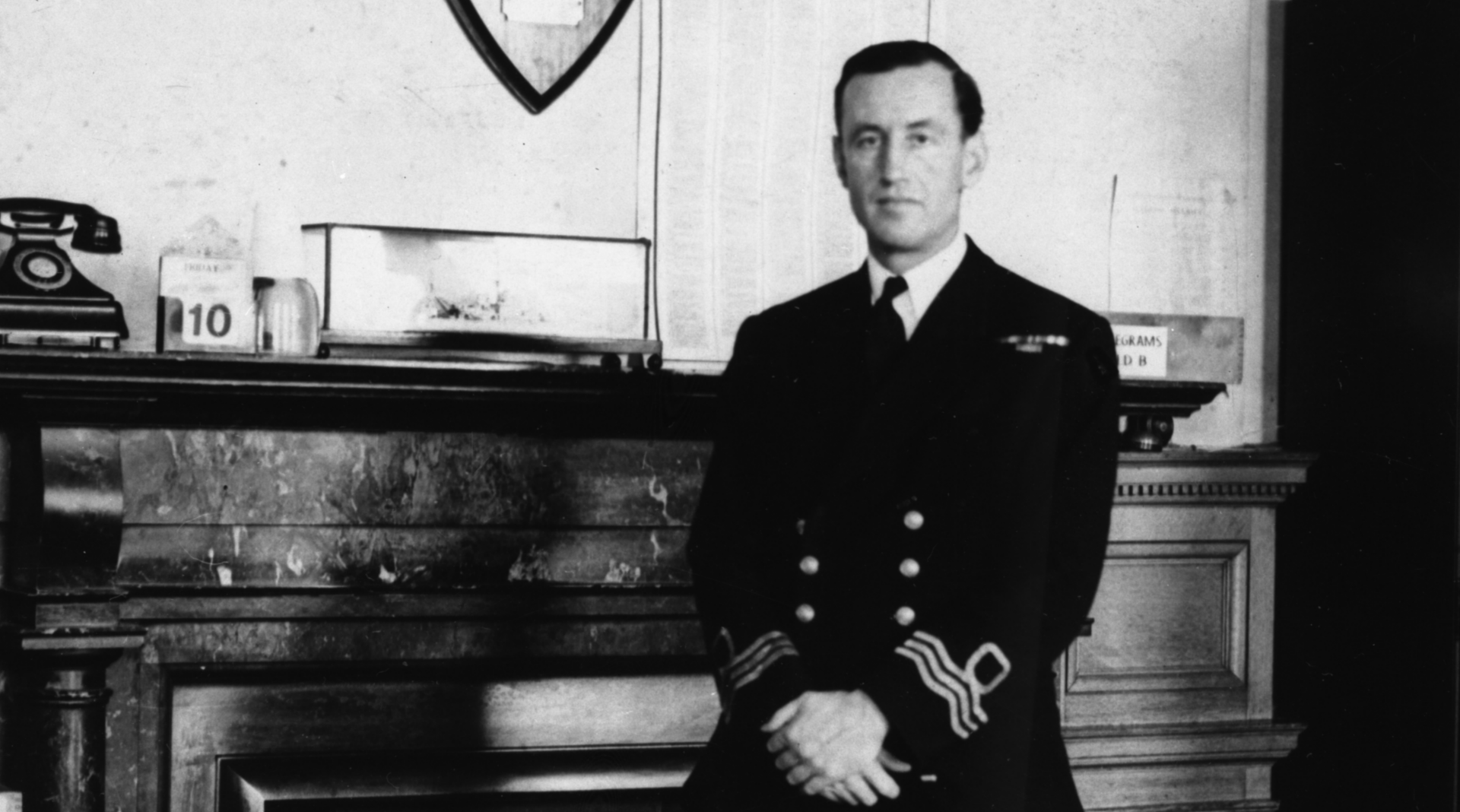
Ian Fleming’s Role in Naval Intelligence
In May 1939, Ian Fleming’s life took a significant turn when Rear Admiral John Godfrey, Director of Naval Intelligence (DNI), recruited him as his personal assistant. Operating under the codename “17F,” Fleming worked in Room 39 at The Admiralty Building in London. Although lacking formal naval experience or intelligence training, his extensive travels and background as a journalist proved valuable. Moreover, Fleming’s charismatic personality played a crucial role, as he acted as a liaison between various departments, including the Secret Intelligence Service (MI-6), Special Operations Executive (SOE), MI-5, and Combined Operations. This granted Fleming unprecedented access to the British intelligence network.
From the Trout Memo to Operation MINCEMEAT
By September 1939, Rear Admiral Godfrey issued what would be known as “the Trout Memo.” This memorandum, often attributed to Fleming’s ideas and style, used fly-fishing as an analogy for conducting deception operations against the Germans. Although some suggestions seemed far-fetched, one proposal involved placing false information on a corpse and allowing the Germans to discover it. This concept later evolved into the highly successful Operation MINCEMEAT. In this operation, a corpse dressed as a Royal Marine officer was floated ashore in Spain, a technically neutral but fascist-friendly country. The operation aimed to deceive the Germans and played a crucial role in British intelligence efforts during the war.

Fleming’s Role in Secret Armies: 30 Assault Unit and T-Force
Following the removal of Rear Admiral Godfrey as DNI in late 1942, Ian Fleming’s influence within the department diminished. Nevertheless, he established his own secret army known as the 30 Assault Unit (30AU). Inspired by a German unit, 30AU comprised over 100 members drawn from various branches, including the Navy and Royal Marines. Operating from 1942 to June 1944, this unit participated in daring raids and attacks on German installations, securing valuable intelligence. Fleming’s involvement primarily focused on planning and targeting, as he was not allowed to participate in the actual raids due to his senior rank as a full commander.
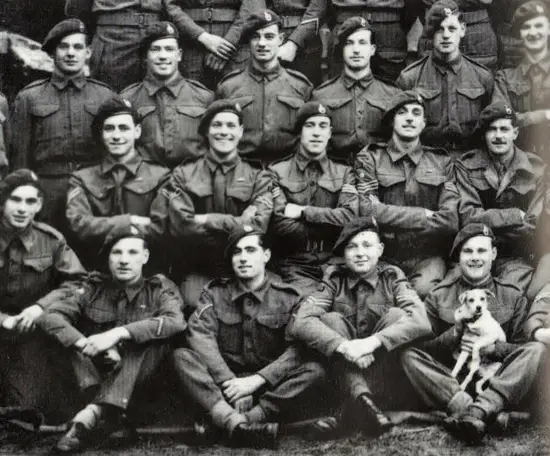
After the disbandment of 30AU, Fleming helped create another special unit called “Target Force” or “T-Force.” Tasked with obtaining records and information from enemy laboratories and headquarters, this unit further showcased Fleming’s talents in targeting enemy intelligence sources. In May 1945, Fleming was demobilized but remained on the Reserve List of the Royal Naval Volunteer Reserve (RNVR) until 1952.
The Birth of James Bond and Fleming’s War Experiences
Returning to journalism after the war, Ian Fleming embarked on a more established career. However, his wartime experiences had exposed him to an entirely new world, inspiring him to write a spy novel. Within two months, Casino Royale (1952) emerged as the first installment of a series featuring the fictional secret agent James Bond. This inaugural novel drew inspiration from Fleming’s visit to Portugal in 1941, where he encountered Germans at the Casino Estoril. Imagining bankrupting them in a game of Chemin de Fer, Fleming kickstarted a series of novels that continued until his untimely death at the age of 56 in 1964.
Fleming’s firsthand encounters with intelligence operations and the world of espionage heavily influenced the James Bond novels. Casino Royale, From Russia With Love, and Moonraker, among others, incorporated elements inspired by real-life events and adversaries. Bond’s early nemesis was the Soviet counterespionage unit SMERSH, mirroring the wartime Soviet NKVD’s Special Section OO. M, the head of the British Secret Intelligence Service (SIS) in the novels, bore resemblances to Admiral Godfrey, with whom Fleming had worked closely. Fleming’s attention to detail, particularly regarding travel, fast cars, scuba diving, food and wine, and the realities of a spy’s life, added a realistic and relatable touch to his fictional creation.
Exploring the Origins of James Bond: A Multifaceted Inspiration
Over the years, speculation and literary debates have arisen regarding the inspirations behind James Bond. Many wartime spies have been suggested or claimed to be the sources of inspiration. However, a closer examination of Bond’s characteristics, education, and rank as a Commander in the RNVR reveals a significant overlap with Ian Fleming’s own experiences and attributes. Bond’s complexities and flaws mirror those of his creator, making the case for a substantial correlation between the two.
For those familiar only with the James Bond portrayed in movies, exploring Ian Fleming’s original novels offers a rewarding experience. Fleming’s exceptional travel writing, insightful discussions, and witty commentary on the less glamorous aspects of espionage make his works worth delving into. His ability to blend realism with touches of the absurd and outlandish sets Fleming apart as an exceptional writer in the spy fiction genre.
Please note that this article does not provide a conclusive ending and is designed to pique readers’ interest in the fascinating origins of James Bond.
Sources and Further Reading:
FAQ: Frequently Asked Questions
1. How did Ian Fleming’s early life influence the creation of James Bond?
Ian Fleming’s early life played a significant role in shaping the character of James Bond. Despite his initial struggles to find his own path, Fleming’s experiences at prestigious schools like Eton and Sandhurst, as well as his time in Switzerland learning languages, provided him with a diverse background that he infused into his novels. His own frustrations and aspirations likely found their way into Bond’s character, creating a relatable and flawed protagonist. Additionally, Fleming’s exposure to the world of espionage through his work in Naval Intelligence during World War II inspired many of the thrilling and realistic scenarios that Bond encounters.
2. What impact did Ian Fleming’s role in Naval Intelligence have on his writing?
Ian Fleming’s role in Naval Intelligence had a profound impact on his writing. Working closely with intelligence agencies and participating in various operations, Fleming gained insider knowledge and firsthand experiences that he expertly incorporated into his novels. His interactions with real-life spies, his understanding of intelligence techniques, and his familiarity with the inner workings of the British intelligence services all lent authenticity to the world of James Bond. This unique perspective allowed Fleming to create a spy character who felt genuine and whose adventures were grounded in reality, making his novels captivating and engaging.
3. How did Ian Fleming’s wartime experiences influence the James Bond novels?
Ian Fleming’s wartime experiences provided him with a wealth of material that he drew upon when crafting the James Bond novels. From Operation MINCEMEAT to his involvement in the creation of secret units like 30 Assault Unit and T-Force, Fleming was exposed to daring missions, intelligence gathering, and the complexities of espionage. These firsthand encounters shaped the thrilling and action-packed nature of the Bond novels. Fleming’s knowledge of enemy tactics, his understanding of military operations, and his insights into the world of spies allowed him to create intricate plots and authentic settings, immersing readers in Bond’s dangerous and unpredictable world.
4. Was there a real-life inspiration for the character of James Bond?
While numerous claims have been made by individuals asserting to be the inspiration for James Bond, it is widely accepted that the character was a product of Ian Fleming’s own imagination. Fleming’s interests, experiences, and personality traits are deeply intertwined with those of Bond, making it difficult to pinpoint a single real-life individual as the sole inspiration. However, Fleming’s exposure to the world of intelligence and his interactions with fellow spies likely influenced the development of Bond’s character and the thrilling scenarios he faces.
5. What distinguishes Ian Fleming’s James Bond novels from the film adaptations?
The film adaptations of Ian Fleming’s James Bond novels have achieved widespread popularity and acclaim. However, there are notable differences between the original novels and their cinematic counterparts. Fleming’s novels often feature more detailed character development, offering insights into Bond’s thoughts, fears, and vulnerabilities that may not be as prominently portrayed on the big screen. Additionally, the novels provide a deeper exploration of Fleming’s interests, such as travel, food, and wine, enriching the reading experience. While the movies may deviate from the source material to suit the visual medium and modernize the stories, Fleming’s original novels remain cherished for their unique storytelling and Fleming’s distinctive writing style.
6. How did Ian Fleming’s connections with intelligence agencies shape his writing career?
Ian Fleming’s connections with intelligence agencies, particularly his work in Naval Intelligence, played a vital role in shaping his writing career. His experiences allowed him to develop a network of contacts within the intelligence community, providing valuable insights and information that fueled his novels. Moreover, his interactions with notable figures like Rear Admiral John Godfrey, as well as his meetings with intelligence heads such as William Donovan and Allen Dulles, expanded his understanding of the espionage world. These connections and firsthand experiences not only enriched Fleming’s storytelling but also provided him with a level of authenticity that resonated with readers.
7. Did Ian Fleming’s wartime service influence the themes explored in the James Bond novels?
Certainly, Ian Fleming’s wartime service influenced the themes explored in the James Bond novels. The novels often touch on Cold War tensions, international espionage, and the ever-present threat of global conflict. Fleming’s firsthand exposure to the intelligence community and his knowledge of real-world operations and techniques lent an air of authenticity to these themes. Additionally, his experiences during the war shaped Bond’s character as a fearless and resourceful secret agent navigating a dangerous world. The novels’ exploration of loyalty, betrayal, and the complexities of human nature can also be attributed, in part, to Fleming’s wartime experiences.
8. What role did Ian Fleming’s travel experiences play in the James Bond novels?
Ian Fleming’s travel experiences played a significant role in the James Bond novels, adding richness and authenticity to the settings. Fleming’s own globetrotting adventures informed his vivid descriptions of exotic locations, allowing readers to vicariously experience the thrill of travel. His meticulous attention to detail when describing foreign cultures, landscapes, and local customs made the settings come alive on the pages. Bond’s globe-trotting escapades, from the casinos of Monte Carlo to the beaches of Jamaica, were often inspired by Fleming’s own journeys. This attention to travel added an immersive and captivating element to the novels, making them all the more enthralling.
9. How did Ian Fleming’s interest in fast cars influence the James Bond novels?
Ian Fleming’s passion for fast cars found its way into the James Bond novels, becoming an integral part of Bond’s character. Fleming’s own love for automobiles, coupled with his knowledge of luxury and performance vehicles, allowed him to incorporate thrilling car chases and high-speed pursuits into the stories. Bond’s iconic Aston Martin and his affinity for other high-performance cars became synonymous with the character, adding an element of excitement and danger to his adventures. Fleming’s detailed descriptions of the cars, their specifications, and the adrenaline rush of driving at high speeds brought an extra layer of excitement to the novels.
10. How did Ian Fleming’s writing style contribute to the enduring popularity of the James Bond novels?
Ian Fleming’s writing style, characterized by a unique blend of realism, adventure, and wit, contributed significantly to the enduring popularity of the James Bond novels. Fleming’s ability to create vivid and engaging narratives, coupled with his attention to detail, transported readers into Bond’s world. His descriptive prose, whether it be depicting a tense espionage operation or a luxurious dinner, captivated readers and allowed them to immerse themselves in the stories. Fleming’s skill in blending realism with touches of the absurd and the outlandish made his novels irresistible and helped solidify James Bond as a timeless literary and cultural icon.
Conclusion
Ian Fleming’s life and experiences in Naval Intelligence provided the foundation for the legendary character of James Bond. From his early struggles to find his path to his role as a key part of British intelligence, Fleming’s journey was a remarkable one. His firsthand encounters with wartime operations, secret armies, and the world of spies shaped the thrilling and authentic nature of the James Bond novels. Fleming’s legacy as an author lies not only in the creation of an iconic character but also in his ability to blend realism, adventure, and wit, captivating readers and ensuring the enduring popularity of James Bond for generations to come.



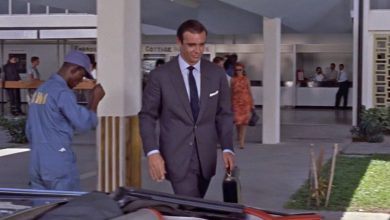




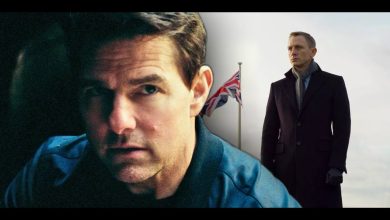

3 Comments